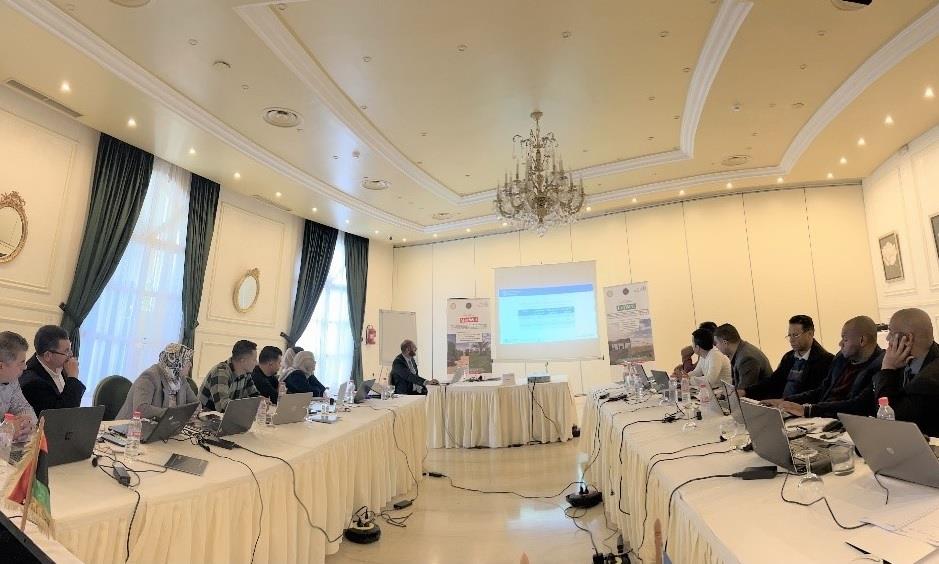Towards efficient monitoring, evaluation, and rationalization of water use in the agricultural sector in Libya

@FAO
Tunis, 30 January - 1st February 2023: The training, currently taking place in Tunis, is part of the capacity-building programme developed within the framework of FAO's two complementary projects: “Monitoring, evaluation and rationalization of water use for agriculture sector in Libya” funded by the Italian Agency for Development Cooperation (AICS) and “Evaluation of irrigation infrastructure, crop mapping and estimation of agricultural water use in Libya” funded by the African Development Bank (AfDB). The two projects, apply satellite image analysis in conjunction with specific algorithms for determining the spatial and temporal variability of agricultural water and land productivity.
During the opening ceremony, Mr. Akram Alkasih, Director General of the Libyan Centre for Remote Sensing and Space Science (LCRSSS) recognized the importance of the two projects being implemented by FAO in Libya. He underlined their direct impact on the creation of fruitful collaboration among key national partners, mainly the Ministry of Water Resources, the Ministry of Agriculture and Livestock, the Libyan Centre for Remote Sensing and Space Science and the National Meteorological Center. He also re-emphasized their commitment to work collectively to support the implementation of the two FAO projects towards optimal monitoring, evaluation and rationalization of water use in agricultural sector in Libya.
14 Libyan specialists are participating to the three days training in Tunis, which aim at strengthening national capacities to monitor water consumption and productivity through remote sensing and to adopt effective options for increasing water productivity in Fezzan region. This experiment is considered a pilot project that should be extended to the whole country and improve knowledge about the damage caused to irrigation infrastructure and the impact on the water use efficiency.
In his statement, Philippe Ankers, FAO Coordinator for North Africa said: “we plan to have a national water platform, MERWAT-Libya, that will be the digital data sharing and dialogue platform using FAO’ Water Productivity Open-access Portal (WaPOR) and field surveys on crop mapping and water uses. WaPOR portal provide near real-time information on evapotranspiration, land use, and water productivity data. The MERWAT platform will enable the Ministry of Water Resources and the Ministry of Agriculture to monitor, evaluate and rationalize water use in the agriculture sector in Libya. Today, the main objective is to give to all of you the opportunity to fully utilize the WaPOR capabilities and to be, why not, in the future, WaPOR portal trainers.
Suleiman Moussa Abboud the National Projects Coordinator and Representative of the Ministry of Water Resources of Libya, underlined the great efforts done by FAO project team in coordinating the activities implemented in the field with the national and local multidisciplinary teams despite the specific libyan context. He reaffirmed the urgent need to plan strategically and implement sound policies and programmes to ensure water and food security for Libya. Finally, he hopes all participants in this training session will be able to expand their expertise across the country.
